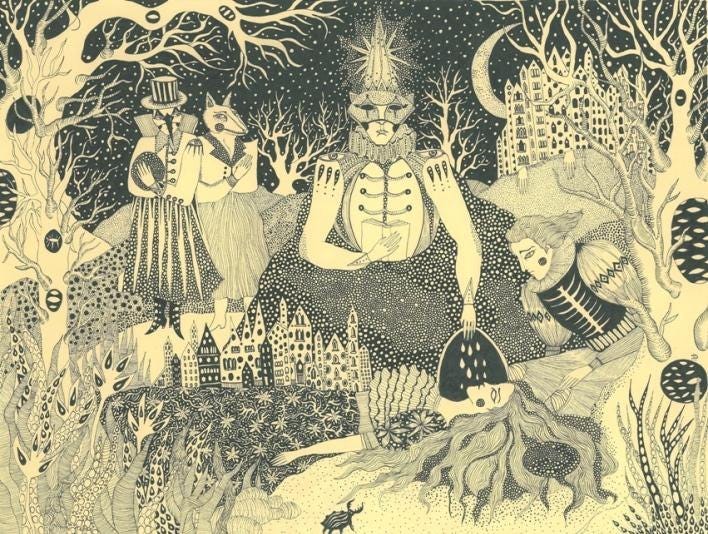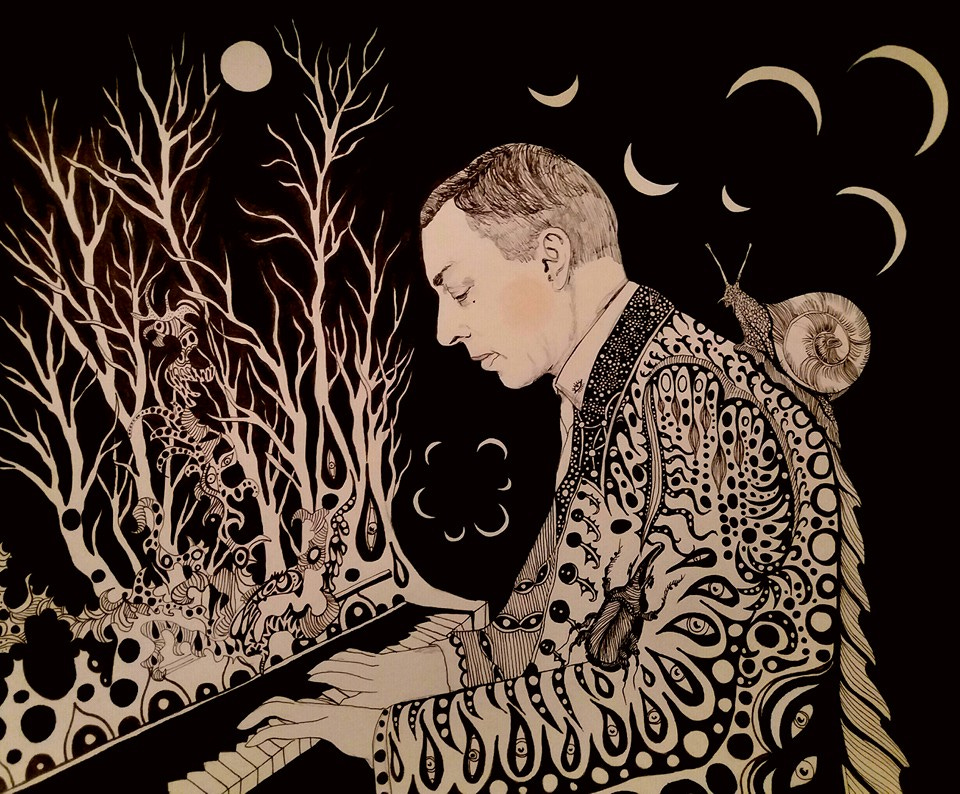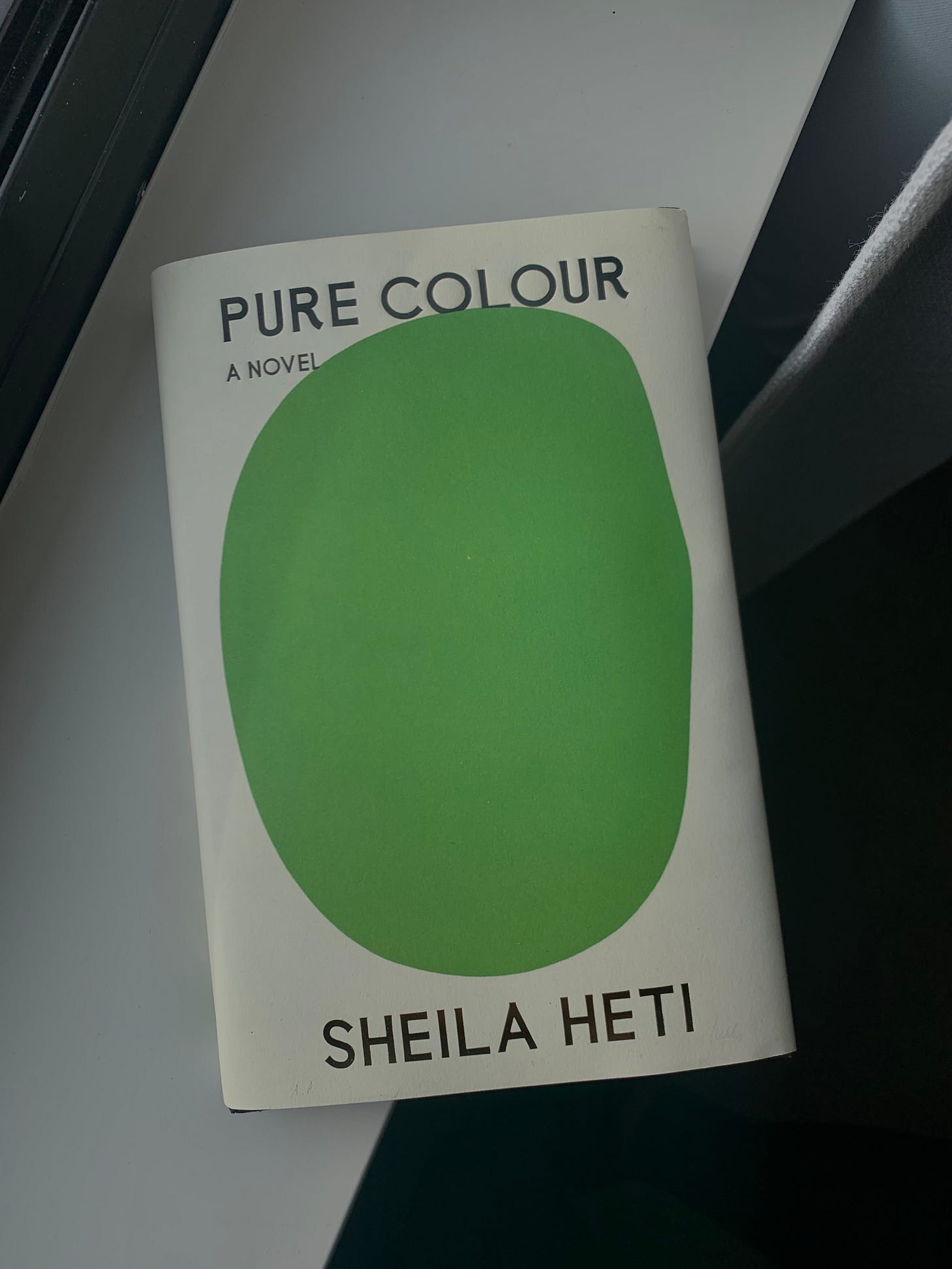
I couldn’t bring myself to hit ‘send’ last Friday. Routines and regularly scheduled programming feel egregious as the world again quakes beneath our feet (here, a poem speaking to this sense of utter disconnect between mundaneness and cataclysms).
The day prior—the day Russia invaded Ukraine—I picked up my Swedish passport at the police station, having recently been granted Swedish citizenship. I ran my thumb over the embossed grooves of the words Europeiska Unionen on the passport’s cover and contemplated what this dual citizenship—American and Swedish—means, just as Europe woke up to a war on its soil.
On the plane to the States that Friday (here for work, with a brief detour home), as we ascended out of Munich, I saw Kyiv marked on the backseat digital map, the one where the so-not-to-scale little airplane icon eclipses the size of several cities below. Kyiv was not, geographically, far away. The wings of our gargantuan airplane-icon almost touched the Poland-Ukraine border. I noticed how I noticed these things. There is this distributed sense, among those of us in Sweden, and throughout Europe, of being “so close” to this particular war. It made me think about how the locus of our own surroundings balloon in importance, how our frame of reference for violence or suffering or attention or care is rarely to scale, as if there even is a scale for the horrors of our time.
Distance and care often seem to have an inverse relationship, and what is far away and what we pay attention to and what we can touch and what is “there” and what is “here” is invariably skewed, filtered by the sepia of what we’ve experienced and felt and who we’ve loved and who we (don’t) listen to. An example: attempting to grasp the utter severity of this war doesn’t exculpate the need to address a comparative racialized disregard of ongoing wars framed as distant and other by the narrative media perspective of the West / Global North, or the racist abuse of people of color attempting to flee Ukraine are facing at the border.
The cacophony of the social media auditorium and its strange forms of disaster etiquette feel like symptoms of our collective disorientation (and alienation) as to what it means to do and what it means to care. (related — this interview with Jia Tolentino on how the internet cheapens our understanding of solidarity). War, today, is fought not only by land or by sea or by air but by airwaves and algorithms and cyberspace networks of (dis)information, and as we pretend to access the world through our screens I wonder if our senses of distance (and by distance I also mean care) is compressed or flattened or widened.
Last month, most of my reading time was spent with Nadia Owusu’s Aftershocks, a stunning memoir about migration, identity, place, grief, depression, generational trauma, body, and family, stitched through Owusu’s tracing the geography of her youth spent growing up in Addis Ababa, Dar es Salaam, Kampala, Kumasi, London and Rome with an Armenian-American mother, Ghanaian father, and Tanzanian stepmother. You can read the part of the book that most resonated with me, Owusu’s essay ‘Home,’ in the Paris Review—
”Let me show you my home. It is a border. It is the outer edge of both sides. It is where they drew the line. They drew the line right through me. I would like to file a territorial dispute. // Let me show you my home. It is a live fault. The fault is in my body.”
Owusu artfully weaves the figure of an earthquake (fault lines, epicenters, aftershocks) throughout to trace the interconnectivity of events and places and time, a topography of identity, with the mind itself becoming a seismometer (a tool for detecting subterranean movements), constantly on alert for not-yet-but-coming shocks.
On the phone the other day, a colleague said to me, “we humans have a hard time holding multiple crises at once.” But I wonder if the separation or isolation of them, this concept of “crises-multiple,” is where we go so astray in the first place. I think our great challenge is to identify and care for and work at the level of their underpinnings, the fault lines in which one epicenter creates an aftershock in another. The way power and disregard, in so many ways, undergird each of them. I also am not so sure about the word crisis—it creates a bracketing, a sense of contained temporality, as if these “events” weren’t somehow entangled, as if what we call a “crisis” isn’t what many people have no choice but to call the everyday. “Crisis,” anthropologist Joseph Masco writes, “has become a counterrevolutionary idiom in the twenty-first century, a means of stabilizing an existing condition rather than minimizing forms of violence across militarism, economy, and the environment.”
*
No such thing as conclusion: Creating and putting out anything right now feels fraught and confusing and pointless in a lot of ways. Hence the hesitation (still, now) to hit ‘send’ with these fissures and fragments (if you can relate, these words from Swedish writer and educator Anna Lovind spoke to me, perhaps they will to you, too).
I’m writing you from a different plane now, from Oregon (I’ve been relishing a few days under the same roof as my parents and dog) to Santa Fe, heading to a seminar with several anthropologists where we’ll work on writing a collective book. The book takes up the theme of houses/housing/home and how houses’ making (and unmaking) are invariably bound up in the making and unmaking of the people that live in, leave, or are taken from, them. And how a house is never only a house but a microcosm of ongoing struggle for a place of one’s own in this world, a struggle which is distributed in uneven and devastating ways. It’s taken me awhile to realize that a lot of my work is concerned with the house(/home), the body as a house/home, and the question of how people carve out possibilities for stability and survival in their own lives amidst a seismic present. I suppose this is what all of our work is concerned with, in one way or another.
I was originally going to write you, that Friday, about crawling out of an inner winter, about how a personal practice of resolving to catch either the sunset or sunrise in Malmö each day became a way of clawing out of a several-month fog, woven in with some reflections on my own migration. About home, belonging, citizenship, nation, borders (and how identity burrows itself into landscapes). Most of what I can see now are the limits of my own perception and frame of reference in writing about any of these things, and how for anyone, all of them can upend in an ordinary instant. This letter is still about all of these things, if not only to underscore how much work there is to do to close this seismic distance, if we ever can.
Below, I’m sharing some prompts, resources and readings which have made me think and feel over the past few weeks. I hope you are thinking and feeling and loving and taking care in the small ways you can. I do believe this, too, has aftershocks, no matter their magnitude.
With love,
Allie
P.S. always — if you feel the tug to write, comment, or connect with this community, a warm welcome to do so here:

a writing prompt on distance
This month’s prompt come from Janice Lee, a Korean American poet whose writing prompts (which you can find here) are some of the most generative I’ve come across in a long time. (You can pre-order Lee’s book of poetry, Separation Anxiety, which comes out in August 2022, here).

resources
One of the more exhaustive resource lists I’ve found for both donating monetarily and taking different forms of political & humanitarian action to help the people of Ukraine.
reading with
An essay in The Atlantic on Chernobyl and the ongoing, living trauma of nuclear fallout, by an anthropologist and mentor whose work and mind I deeply admire.
Ukrainian poet Ilya Kaminsky on Ukrainian, Russian, and the language of war (“The language of poetry may or may not change us, but it shows the changes within us.”)
Weike Wang’s New Yorker article on overwork and privilege and the pandemic
Gwendolyn Wallace’s essay Surface Tension in The Offing
Few writers capture the wanderings of the mind like Sheila Heti. I’ve been enjoying her serial in The New York Times of alphabetized sentences from her diary, a sort of pastiche poetry. I’m nearly finished with her recently-published novel, Pure Colour, and it has been awhile since I’ve been moved to tears in this way by a book. I feel this novel so viscerally—it is devastatingly beautiful, strange, and daring, an explosion of literary form. Which is one of the reasons I am hitting send today after all, to tell you about this book, because art can move us when we least expect it, because story can shorten distances of geography, perception, and experience.
listening with
Quitted. —a podcast on quitting things, which addresses the question “What happens when you don’t want to be who you re any more?” (with Holly Whitaker & Emily McDowell)
Pulling the Thread with Elise Loehnen

Did this issue of T H E | L I M I N A L resonate with you, or might it land with someone in your orbit? You can share a screenshot of any portion on social media tagging @liminalliety, or use the buttons below to share.






